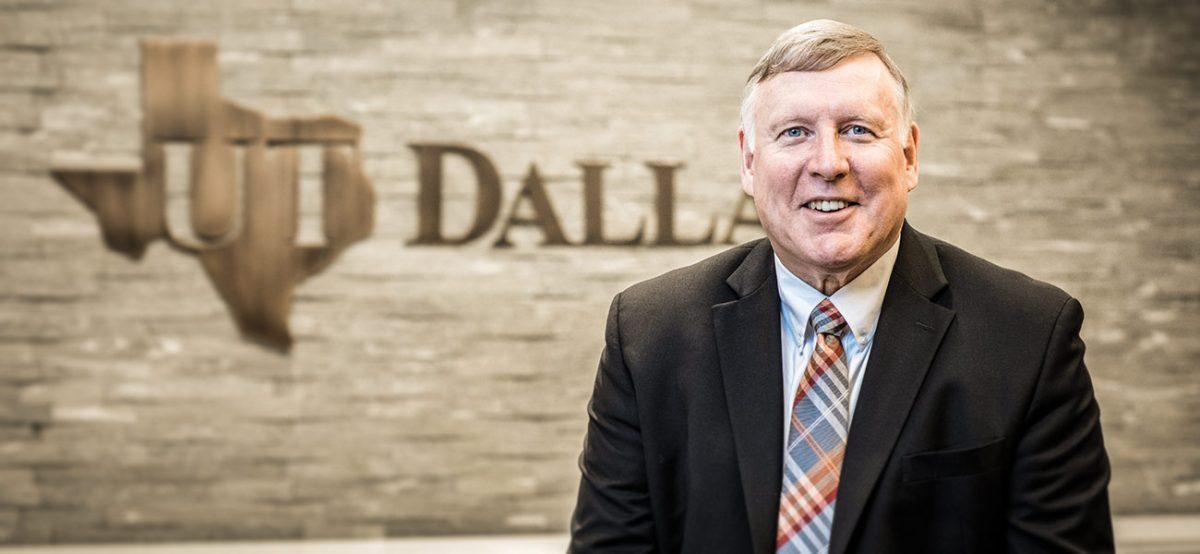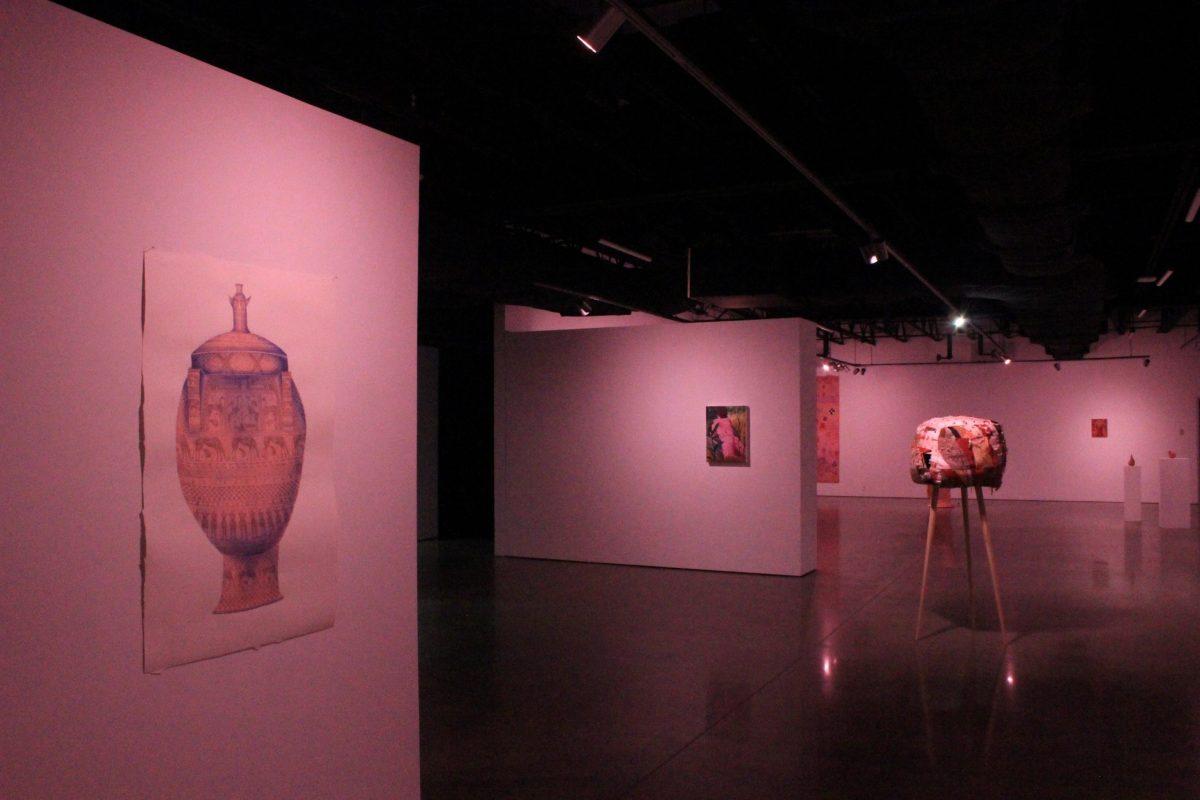President Richard Benson sent out a schoolwide email Aug. 26 announcing the UT System has accepted his resignation and is beginning to look for a new president.
Benson, who became UTD’s fifth president in 2016, said in the email he expects the search to take “the better part of the 2025 academic year.” He will remain president until a successor is chosen and ready to begin their term and will remain a faculty member at UTD after stepping down. In a written statement to The Mercury, Benson said his advanced age played a major role in his decision to step down as president. Benson’s resignation comes in the wake of a year of political turmoil at UTD and numerous other American university presidents stepping down.
“I am 73, my health is good for a septuagenarian and I have served for eight years,” Benson said. “I had specific goals when I arrived and I have accomplished those, although I certainly didn’t do it alone. I’ve had the support of a tremendous and talented community during my time at UTD.”
The 2023 American Council on Education’s survey of university presidents reported the average presidential term is 5.9 years, a stark decline from the averages for 2006 and 2016 of 8.5 and 6.5 years in office, respectively. Benson’s eight-year term exceeds the most recent national average yet it is the shortest term served by any UTD president. Benson’s announcement comes weeks after high-profile presidential resignations at Harvard, the University of Pennsylvania and most recently Columbia, where President Minouche Shafik resigned after criticism from both progressive and conservative voices within her institution and across the nation — as well as resignations at local Texas universities like Southern Methodist University and the University of North Texas.
“Perhaps the most notable [legacy I hope to leave] is ‘Putting the A into STEM to form STEAM,’” Benson said. “UTD has long been known as a STEMM-focused university: Science, Technology, Engineering, Math and Management — we have two M’s.”
Benson has presided over the rapid growth and development of the arts on campus, overseeing the creation of the School of Arts, Humanities and Technology in 2022 and the $40 million donation from the Bass foundation in 2023. The first phase of the Athenaeum, planned and constructed during Benson’s presidency, is scheduled to open this September and will be home to the Crow Museum of Asian Art.
“The Crow Museum in particular is going to be hugely attractive to the region,” Benson said in a 2022 Dallas Morning News article. “We expect a lot of younger folks to come here on field trips. I joke that no one will ever come for a football game, but they will come for the arts.”
During Benson’s tenure as president, UTD went tobacco free in 2017; became an R1 research institution in 2018; celebrated its 50th anniversary in 2019; and weathered the COVID-19 pandemic. Benson said in his written statement the pandemic was “a terrible, life-threatening disruption for all universities” and the most difficult period of his presidency.
“COVID was such a terrible threat, and every university had to find a path forward with few points of reference. The last pandemic of comparable threat was in 1918,” Benson said. “With hindsight, I think that UTD — the leadership came from many quarters — found an appropriate path forward. No doubt, sociologists will study these years, 2020 to 2022, for many years to come to better understand what worked well and what did not.”
Although the first half of Benson’s reign brought on positive change, the final few years of Benson’s presidency were marked by conflicts with student activists and politics. In the spring 2023 semester, Student Government passed S.R. 2022-40, which called for UTD to divest its investments in five weapons manufacturing companies. Benson would publicly distance himself from this resolution by writing a letter which said “UTD leadership does not share the same view as the student senate … The resolution does not obligate UTD or the UT System to take any action.”
Fall 2023 saw an increase protest activity on campus as students continued to demonstrate in favor of divestment. In November 2023, UTD administration removed the Spirit Rocks in response to students using them for pro-Palestine and pro-Israel political expression; the Spirit Rocks had served as a platformed student expression and political slogans since their installation in 2008 by the Office of Student Affairs.
Students continued protesting UTD’s administrative decisions through the first student sit-in at the Administration Building in April 2024 and the first state trooper raid of a student protest in UTD history on May 1, resulting in the arrest of nine students, three faculty and nine community members. In the May 22 meeting of UTD’s Academic Senate, Benson said he “wanted to see how it plays out” regarding UTD’s ongoing legal and academic cases against the arrested students and faculty.
The UT System Regents’ Rules and Regulations outline the specific process by which the next president will be chosen in Rule 20201: Presidents. An advisory committee will be created and tasked with reviewing potential candidates and recommending up to 10 candidates for the UT Board of Regents to make a final decision on. If the regents find the recommended candidates to be unsatisfactory, then a new advisory committee may be formed, or the regents can choose someone at their own discretion. The advisory committee is composed of at least 13 members, which will include three faculty members, one staff member, one dean, the president of the UTD Alumni Association and one student.




